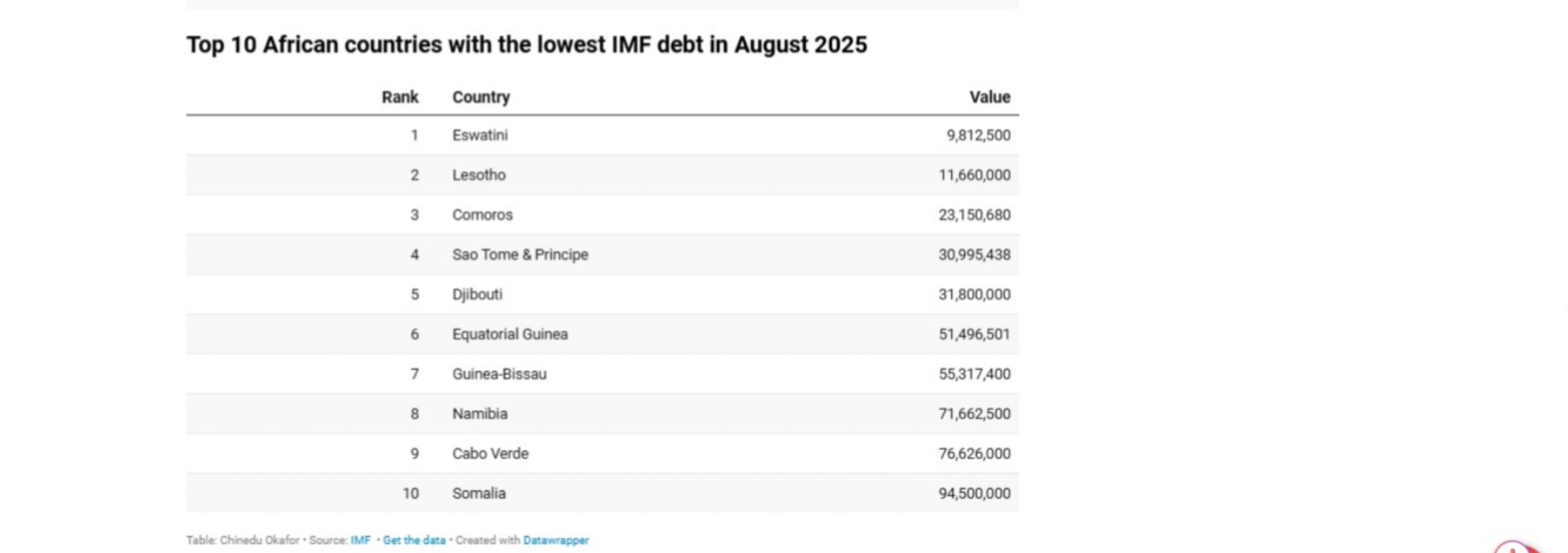Top 10 African Countries With the Lowest Debt to the IMF in August 2025
The correlation between an African country’s debt levels and the International Monetary Fund (IMF) is still one of the most important indicators of economic stability on the continent.
While IMF support might be a lifeline, governments with smaller debt burdens gain from more financial independence, investor trust, and flexibility in executing reforms.
Recent developments in Eswatini and Kenya demonstrate why maintaining IMF debt at sustainable levels might benefit African governments facing economic issues.
In Eswatini, the IMF’s 2025 Article IV consultation forecasted growth of 4.3% in 2025, up from 2.8% in 2024, with inflation predicted to fall to 3.5%.
Importantly, Eswatini is not substantially indebted to the IMF, allowing the government to chart its own economic course while getting technical assistance from the Fund.
By avoiding excessive borrowing, the government retains budgetary headroom while increasing market confidence in its long-term stability.
The experience of Eswatini shows that low IMF debt allows governments to retain autonomy in policymaking, maintain investor trust, and guarantee that borrowing remains an instrument for stability rather than a cause of vulnerability.
Limiting vulnerability to IMF loans has clear benefits for African nations seeking to balance growth and debt management.
With that said, here are the 10 African countries with the lowest debt to the IMF in July 2025, according to data from the IMF.
Compared to the list last month, the countries with the top 10 lowest IMF credits on the continent this month largely remained the same.








